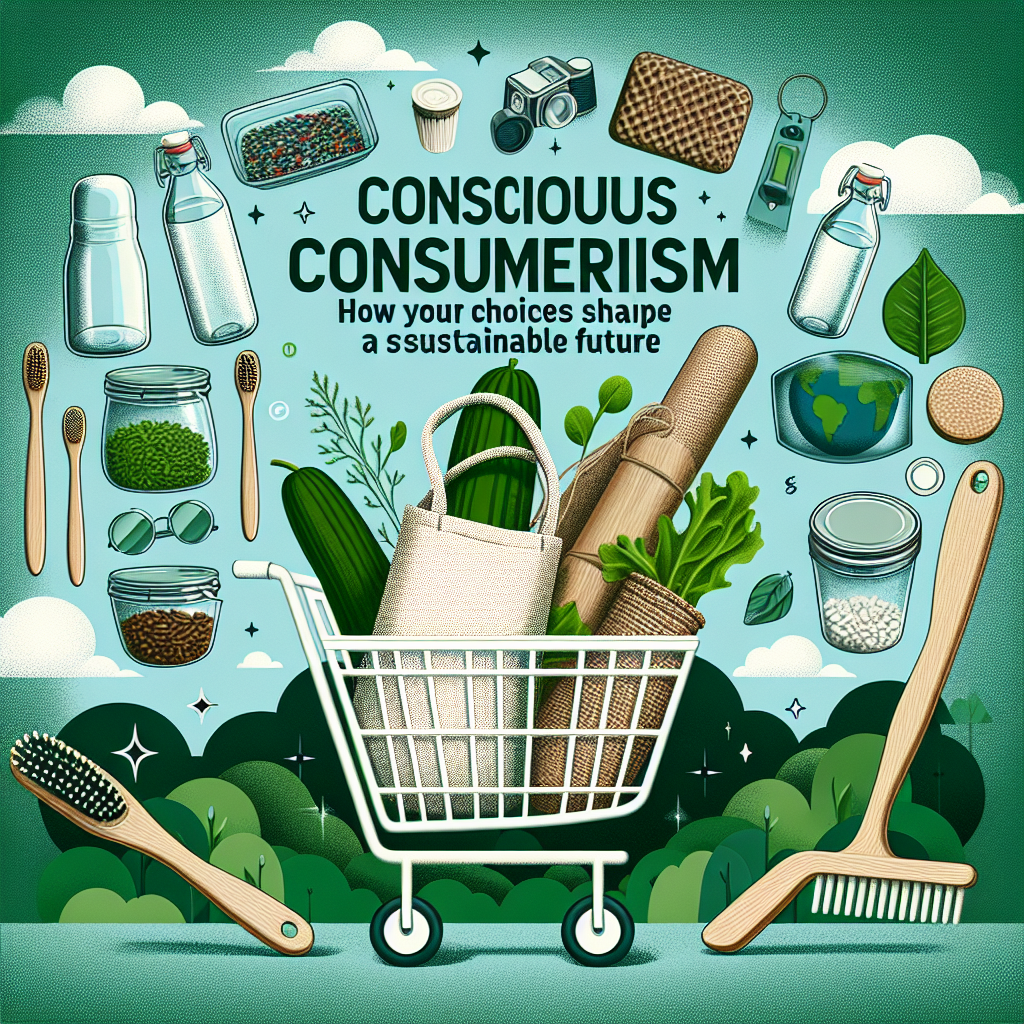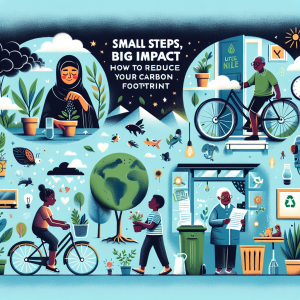In an age where environmental degradation and social inequality persist, the rise of conscious consumerism is reshaping markets and holding industries accountable. Conscious consumerism is not just a trend; it represents a fundamental shift in how consumers approach their purchasing decisions, prioritizing ethics, sustainability, and social responsibility over convenience and low cost. This article delves into the concept of conscious consumerism, its impact, and how your choices can play a significant role in crafting a sustainable future.
Understanding Conscious Consumerism
At its core, conscious consumerism involves making informed choices that consider the environmental, social, and economic implications of products and services. It encourages people to think critically about where their goods come from, how they are produced, and their overall impact on the world.
Key Principles of Conscious Consumerism
-
- Ethical Production: Consumers increasingly seek products made under fair labor conditions, avoiding companies that exploit workers or engage in unethical practices.
- Ethical Production: Consumers increasingly seek products made under fair labor conditions, avoiding companies that exploit workers or engage in unethical practices.
-
- Sustainable Practices: Conscious consumers prefer companies that employ sustainable methods of production, focusing on minimizing environmental impact, reducing waste, and utilizing renewable resources.
- Sustainable Practices: Conscious consumers prefer companies that employ sustainable methods of production, focusing on minimizing environmental impact, reducing waste, and utilizing renewable resources.
-
- Transparency: Today’s shoppers demand transparency regarding sourcing, supply chains, and manufacturing processes. Brands that share this information tend to build a stronger connection with their customers.
- Transparency: Today’s shoppers demand transparency regarding sourcing, supply chains, and manufacturing processes. Brands that share this information tend to build a stronger connection with their customers.
-
- Local Sourcing: Supporting local businesses can reduce carbon footprints associated with transportation and contribute to local economies.
- Local Sourcing: Supporting local businesses can reduce carbon footprints associated with transportation and contribute to local economies.
-
- Minimalism and Mindfulness: Conscious consumerism encourages a “less is more” philosophy. Instead of accumulating material goods, individuals are urged to seek out meaningful experiences and durable, high-quality products.
- Minimalism and Mindfulness: Conscious consumerism encourages a “less is more” philosophy. Instead of accumulating material goods, individuals are urged to seek out meaningful experiences and durable, high-quality products.
The Impact of Conscious Consumerism
Environmental Benefits
The environmental consequences of consumer habits are profound. By opting for sustainable products, consumers can help reduce pollution, lower carbon emissions, and protect biodiversity. For instance, choosing to buy from brands that utilize eco-friendly materials can significantly lessen the amount of waste generated and the resources consumed.
Social Change
Beyond environmental impacts, conscious consumerism drives social change. By supporting companies that advocate for fair labor practices and humane working conditions, consumers can help uplift marginalized communities and combat systemic inequalities. This shift can encourage businesses to adopt more ethical practices, leading to a ripple effect across industries.
Economic Implications
The demand for ethical and sustainable products has spurred the growth of green economies. Businesses that prioritize sustainability often experience increased market share, attracting consumers who are willing to pay a premium for ethically-produced items. As conscious consumerism takes root, companies must adapt, leading to innovation and the creation of new, sustainable business models.
How to Become a Conscious Consumer
Educate Yourself
Stay informed about the brands you support. Research their practices regarding sourcing, labor rights, and environmental responsibility. Websites and apps dedicated to ethical consumption can guide you in making informed choices.
Support Local and Sustainable Brands
Opt for local businesses and brands that prioritize sustainability. Not only does this stimulate local economies, but it also often reduces the environmental burden associated with transportation and distribution.
Reduce, Reuse, Recycle
Embrace the principles of the circular economy by minimising waste. Before purchasing new items, consider if you can repair, repurpose, or buy second-hand.
Advocate for Change
Your voice matters. Advocate for policies and practices that promote sustainability in your community and support organizations aligned with your values.
Reflect on Needs vs. Wants
Before making a purchase, ask yourself whether the item is a need or merely a want. This practice promotes thoughtful consumption and minimizes impulsive buying.
Conclusion
Conscious consumerism offers a powerful way for individuals to influence positive change in the world. As consumers become more aware of their choices and their consequences, the demand for sustainable practices will continue to rise. Ultimately, the path to a sustainable future is paved with mindful decisions that reflect our values—choosing ethically, supporting our communities, and preserving the planet for future generations. Each purchase can be a vote for the kind of world we want to create. By embracing conscious consumerism, we can collectively shape a more equitable and sustainable future.




